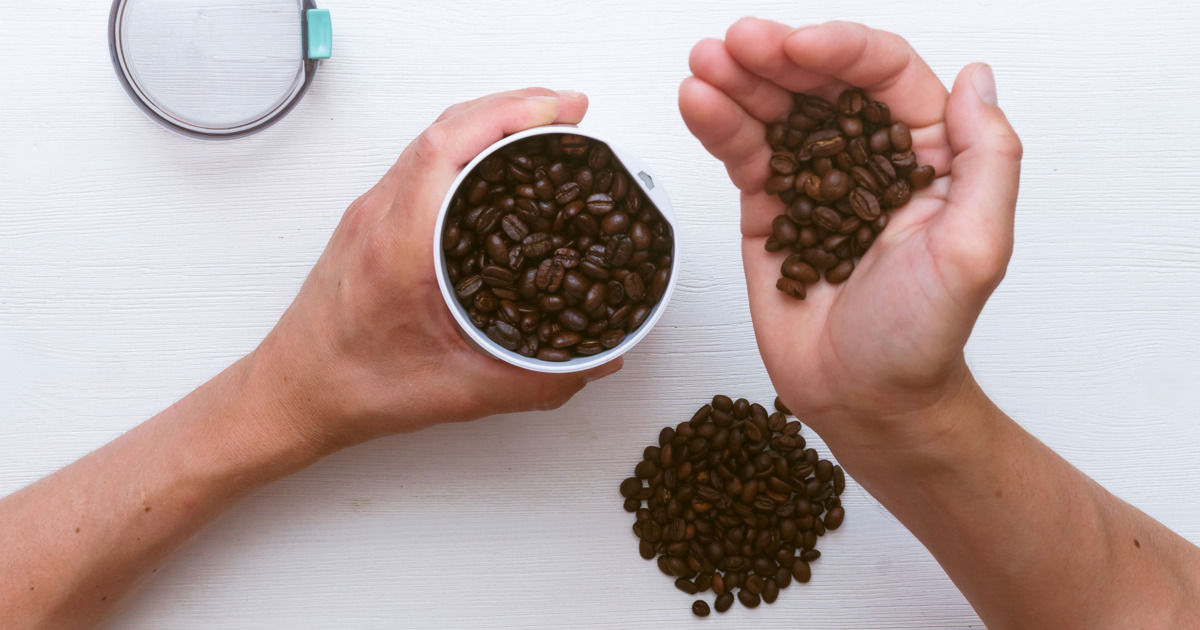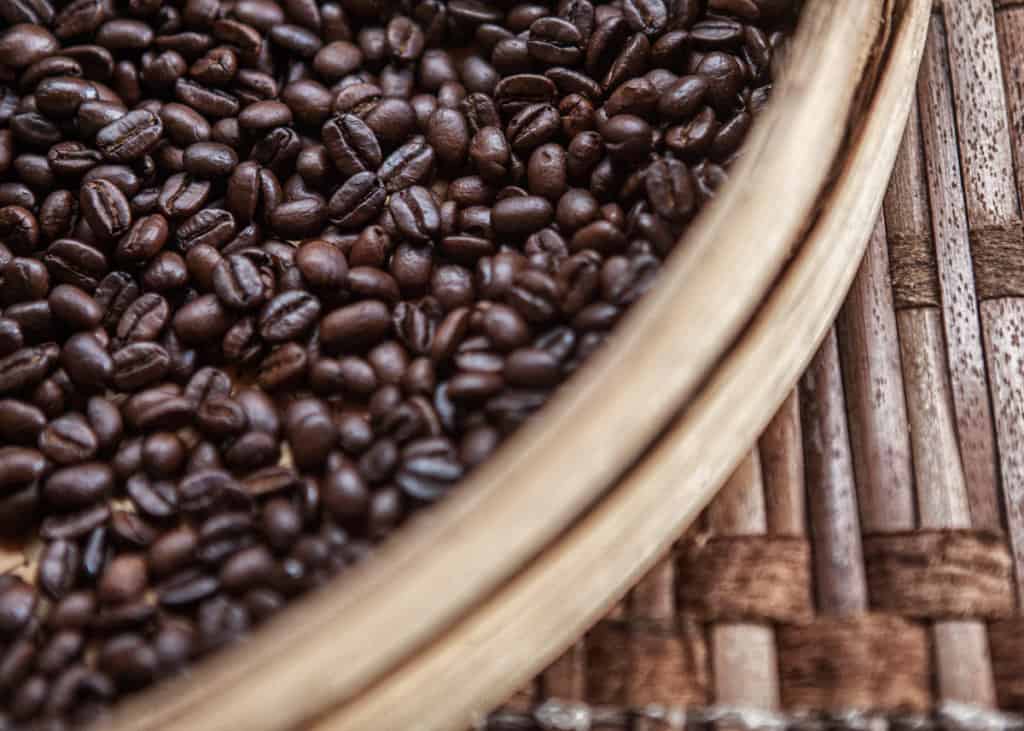The freshness of coffee beans is a false proposition! How to judge the freshness of coffee beans?
Professional coffee knowledge exchange more coffee bean information please follow the coffee workshop (Wechat official account cafe_style)
Almost every coffee book on the market will tell you that after roasting, it takes a while for raw coffee beans to continue to recombine their chemicals or emit baking gases to maximize their flavor. Some theories will give you a time limit, some will not, and some books or online articles directly tell you that coffee beans are almost dead a month after they are roasted. Such a statement seems to combine the freshness with the baking completion time, which is the most direct factor affecting the freshness.
The more people are exposed to coffee, the more they will think that the "freshness" of coffee beans is a false proposition, that is to say, this inaccurate way of discussion, and it is also easy to mislead people to think that coffee beans are as fresh as possible.

The dictionary tells us that there are roughly two definitions of the term "fresh". The first refers to something new that has never happened before, and the second refers to clean, delicious food without deterioration. If it is in the field of coffee, what we use should be the second one.
However, about the freshness of this statement, itself is not a specific description.
First, there is no specific standard for freshness itself.
At present, most of the discussions on the freshness of ripe coffee beans point to how long after baking, or how the coffee is made after grinding (exhaust or swelling after the encounter of hot water; how the size and color of the foam change; the speed of the water changes), and how does it taste (is there a smell of fuel consumption? Has the flavor been developed? Is there an imbalance between aroma, sour, sweetness and tail rhyme? To determine the state of the coffee beans.

It is easy to point out a lot of relevant observation points, but these are not evidence that can directly explain the freshness of coffee beans, we do not have a common standard to directly see the freshness of coffee beans, but through so much of the above evidence as evidence in order to judge the state of coffee beans. Yes, freshness itself is not a clear and direct standard, which needs to be judged comprehensively by many objective criteria.
In other words, freshness is an abstract concept, not a specific standard that we all agree on.
Second, the freshness of coffee beans is not directly related to whether they have just been roasted or not.
When it comes to the adjective fresh, what do we immediately think of?
In agricultural products, it should be sent directly from the place of origin. The farmer harvested it early in the morning and sent it to your house before noon. We will think it is fresh. The same is true of the catch. Before dawn, the boatman fished the fish ashore and sent them to your kitchen. When the fish was still alive, we knew the fish was fresh. In the baking world, freshly baked, hot bread with a soft and moist bite will be said to be fresh.

But in the world of coffee? Experienced players should know that freshly baked coffee is not necessarily at its best. The flavor performance of coffee cooked beans will be different in the ripening period because of the differences between the characteristics of the roaster and the operation methods of the baker. Some beans baked by bean bakers reach perfect condition just after baking, some beans are sealed and kept for a week before the flavor reaches its maximum value, and some even claim that their beans will take a month to give you the best taste.
When you think about it, you will believe that the sashimi sent directly from the place of origin is fresh, but you will use the word fresh to describe what to do overnight. If you change to coffee beans for a month, if the process and preservation are good, the fresh fish will turn into dried fish, and if you leave it at random, it should be so rotten that there is no meat left.
In most cases, the flavor of coffee beans will go through a process of rebound from the bottom of the valley after baking, and then decline again after reaching a peak. Coffee-related books are generally described in this way, and most online article sharing is also described in this way. However, there are also some factory products that are a little special in the baking machine, and there are also adjustments in baking methods, so that their beans can be stored longer than their own baking after baking, and the flavor immediately reaches a maximum on the day they are opened, but half of the flavor is left the next day, and then there is nothing left the next day.

Generally speaking, the coffee beans sold in our own roasting cafe can be drunk immediately until they are put for a month and last for at least a week or two after opening the package, but the coffee beans baked by some large factories can still maintain a certain level of taste after half a year, but it is best to use them immediately on the day they are unsealed.
In this case, the term freshness is almost expressed separately. Since the term freshness in general does not necessarily apply directly to the world of coffee, is it really good for the term freshness to be applied to coffee?
However, when the term freshness is put on coffee, it seems to have become a conventional saying, a tacit understanding or term in communication.
Since there is no public objective standard for the freshness of coffee, it is too general to use the word "fresh" when discussing the problems encountered in brewing. Perhaps we can further try to clarify the causes of those problems:
"the exhaust of beans is still very intense. Maybe we should cook them later."
"it is not long before the color of the foam is white when it is cooked, and it may be necessary to cook with a rhythm later."
"the spot-shaped oil from the deep-baked Mantenin is sucked back into the beans. At the same time. "
The adjective freshness is more suitable to be used in marketing promotion, as soon as people hear it or see it, a series of pictures related to "freshness" will naturally come to mind. However, the term "fresh" is not suitable for coffee as a whole, on the contrary, the concept of "cooked" will be closer to what we set when making coffee. Moreover, whether it is fresh or not is not our ultimate goal, what we need is a set of specific indicators that can more accurately confirm the status of coffee, so that we can work out the corresponding adjustment direction in the following brewing process.
Since knowing whether the coffee beans are fresh is only a general abstract description, we should develop more accurate tools to examine them, extending forward to the quality of the raw beans, the techniques of the bakers, and the characteristics of the baking machine. Continue back to how the next cooking should be carried out.
But this process takes time to accumulate experience, even in a busy coffee shop, it takes a year and a half to get some basic understanding, so that your cooking database can be a little basic, and if you just play at home, the time and cost is even more amazing.
END
Important Notice :
前街咖啡 FrontStreet Coffee has moved to new addredd:
FrontStreet Coffee Address: 315,Donghua East Road,GuangZhou
Tel:020 38364473
- Prev

What are the differences among iced coffee, cold coffee and ice drop coffee?
What you also get is a cold cup of coffee, but the taste and production process of chilled, cold extract and ice drop coffee are very different. The cold extraction method belongs to immersion type, while ice drop is percolation type, while cold coffee just lowers the temperature of hot coffee, which is not as good as cold bubble and ice drop in taste. Hot extraction chilled coffee ice coffee refers to the rapid extraction of coffee with hot water
- Next

The Origin of filter Paper use how to choose Coffee filter Paper
The origin of filter paper before the invention of filter paper in the 20 th century, people used filter cloth to filter coffee. At that time, Melitta Bentz, a coffee-loving housewife in East Germany, was tired of cleaning coffee grounds from the filter cloth, but she thought there must be an easier way to filter coffee. After trying many different materials and methods, she finally decided to use her son's ink absorption.
Related
- Beginners will see the "Coffee pull flower" guide!
- What is the difference between ice blog purified milk and ordinary milk coffee?
- Why is the Philippines the largest producer of crops in Liberia?
- For coffee extraction, should the fine powder be retained?
- How does extracted espresso fill pressed powder? How much strength does it take to press the powder?
- How to make jasmine cold extract coffee? Is the jasmine + latte good?
- Will this little toy really make the coffee taste better? How does Lily Drip affect coffee extraction?
- Will the action of slapping the filter cup also affect coffee extraction?
- What's the difference between powder-to-water ratio and powder-to-liquid ratio?
- What is the Ethiopian local species? What does it have to do with Heirloom native species?

